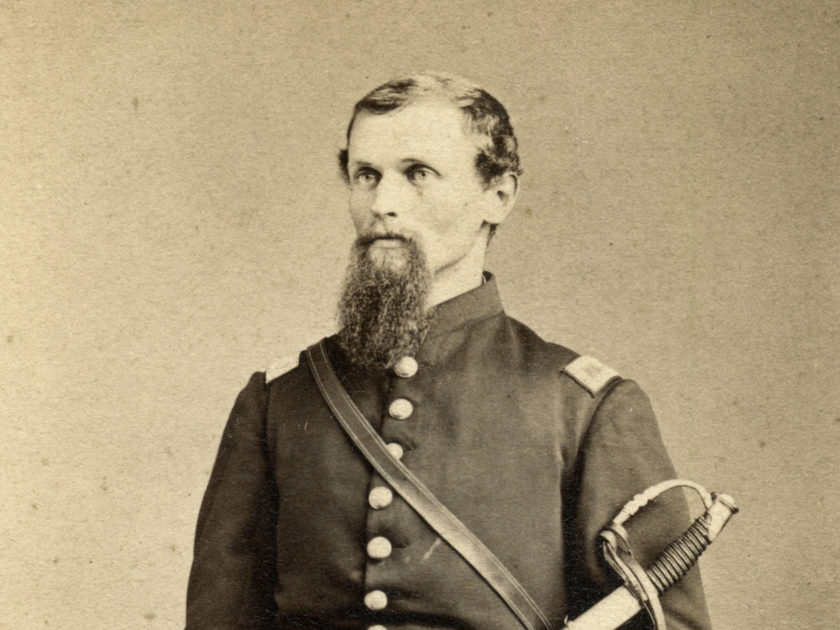
At Antietam on Sept. 17, 1862, an awful moment occurred when heavy Confederate artillery fire from the vicinity of the Dunker Church greeted the 90th Pennsylvania Infantry as it moved into the infamous Cornfield. The men and officers of the 90th advanced into a hail of rebel infantry fire and became hotly engaged. Men were hit and began to fall by the dozens. The federals on their left and right flanks gave way. Now outnumbered, the Pennsylvanians withdrew through the East Woods and on to the rear.
A few of the men paused at the edge of the woods and looked back at the carnage in the Cornfield, only to glimpse an officer engaged in an act of heroism.
The officer, 2nd Lt. Hillary Beyer of Company H, stood alone in the field and cared for his wounded comrades as the enemy fire continued unabated. At one point, Beyer picked up and carried a desperately wounded soldier out of danger. He set the man down behind a large rock that deflected rebel bullets. Then, he joined the group at the edge of the woods, just as fresh Union troops came up to continue the fight. An eyewitness recalled, “How Beyer escaped with his life was a wonder to those who saw the great danger he placed himself in.”
Beyer would go on to participate in numerous battles, including Gettysburg, where he commanded his company after his captain was wounded. In early 1864, he was placed in command of Company I, which had no officers present for duty. It was a tough assignment. The company’s depleted ranks had been filled with conscripts and substitutes. Beyer whipped them into shape and they fought nobly in the Virginia battles of The Wilderness, Spotsylvania, Bethesda Church, Petersburg and Weldon Railroad.
After the war, Beyer married and started a family that grew to include three children. He worked at the Knickerbocker Ice Company in Philadelphia and Germantown, Pa.
In 1896, Beyer received the Medal of Honor for Antietam. In his only known public comments about the battle, Beyer did not mention his role, though he noted, “You all know how the enemy was hurled back into Virginia!”
Beyer lived until 1907. He was 69.

